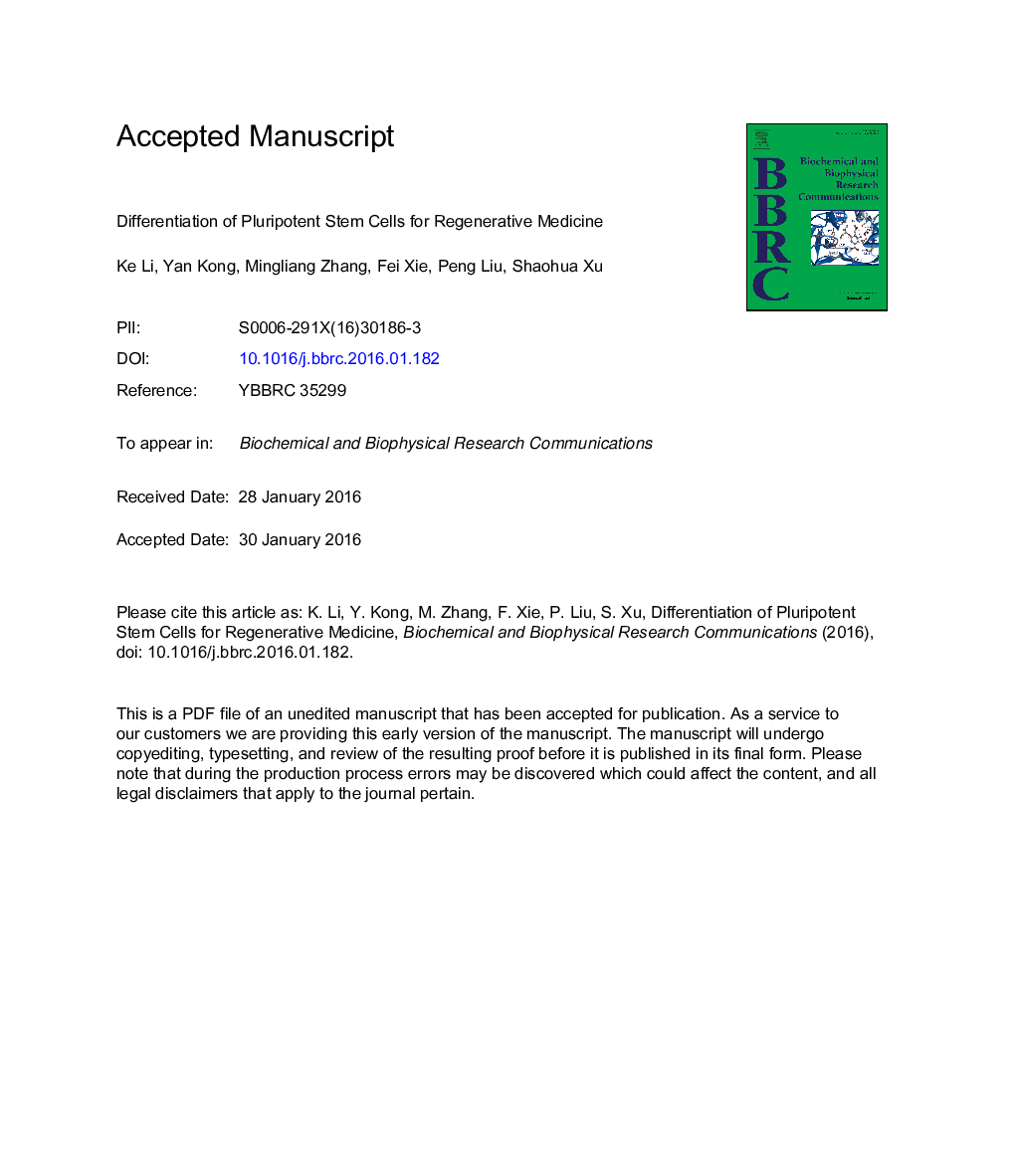| Article ID | Journal | Published Year | Pages | File Type |
|---|---|---|---|---|
| 10748761 | Biochemical and Biophysical Research Communications | 2016 | 21 Pages |
Abstract
A long-standing goal in regenerative medicine is to obtain scalable functional cells on demand to replenish cells lost in various conditions, including relevant diseases, injuries, and aging. As an unlimited cell source, pluripotent stem cells (PSCs) are invaluable for regenerative medicine, because they have the potential to give rise to any cell type in an organism. For therapeutic purposes, it is important to develop specific approach to directing PSC differentiation towards desired cell types efficiently. Through directed differentiation, PSCs could give rise to scalable, clinically relevant cells for in vivo transplantation, as well as for studying diseases in vitro and discovering drugs to treat them. Over the past few years, significant progress has been made in directing differentiation of PSCs into a variety of cell types. In this review, we discuss recent progress in directed differentiation of PSCs, clinical translation of PSC-based cell replacement therapies, and remaining challenges.
Keywords
IPSCRPEGMPAMDPSCENPFGFTGFKGFAFESCZAutism spectrum disorderSchizophreniaretinal pigment epitheliumtransforming growth factorDirected differentiationESCShhEmbryonic developmentGood Manufacturing PracticesCell therapyPluripotent stem cellsPluripotent stem cellInduced pluripotent stem cellEmbryonic stem cellsage-related macular degenerationsonic hedgehogKeratinocyte growth factorfibroblast growth factorBMPSmall moleculesASDbone morphogenic proteinRegenerative medicine
Related Topics
Life Sciences
Biochemistry, Genetics and Molecular Biology
Biochemistry
Authors
Ke Li, Yan Kong, Mingliang Zhang, Fei Xie, Peng Liu, Shaohua Xu,
